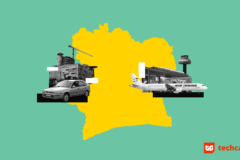This article was contributed to TechCabal by Olufemi Adewumi and Bhavik Doshi. Adewumi is Programs Director, MEST Africa; Doshi is Research and Impact Manager, MEST Africa.
The African Tech Ecosystem Opportunity
Africa holds limitless potential for the growth of tech startups; several African tech founders have already received global recognition for building innovation businesses and products. Africa is becoming known as the most entrepreneurial continent in the world. The continent has also experienced remarkable growth in start-up funding over the past decade. Despite this growth, the investment gap between Africa and the rest of the world is significant, with Africa accounting for just 0.2% of the value of global startups. Clearly, there is a lot more to be done to support the growing entrepreneurial tech ecosystem.
Tech startups on the continent face funding and liquidity bottlenecks throughout their life cycles. Confirming this, the Tony Blair Institute’s paper on ways to boost tech entrepreneurship reveals that the average value of African startups seed rounds is $1.5 million, compared to $4.6 million and $5.7 million in India and Latin America respectively. These funds are dominated by foreign investors outside the continent. Africa’s value chains are also highly fragmented both at the national and continent levels. This was identified along with other challenges faced by African ventures, in the tech ecosystem research report by The Meltwater Entrepreneurial School of Technology (MEST).
Are African Start-ups taking the global stage?
The situation is not all bleak, a report from Partech, a Venture Capital firm that tracks annual start-up data, shows that Africa Venture Capital (VC) deals grew 3x faster than the rest of the world in 2021 and according to Bloomberg, this trend has doubled in 2022. This shows that the world is indeed waking up to the potential of tech startups in Africa.
The acceleration in start-up funding has led to increasingly successful startups coming out of the continent. The number of African unicorns (startups valued at over a billion dollars) doubled over the past two years and an increasing number are looking to list on global stock exchanges. We are seeing more and more African startups take the global stage.

Healing Africa’s Value Chains
To be successful, startups need deep technical and business skills, which founders often lack. Many also do not hold a systems perspective and are siloed, not seeing value chain-level opportunities. It is therefore imperative to empower founders with programs that deliver hands-on business interventions focused on rapid practical application and observable business outcomes but also with a systems-wide outlook.
Entrepreneurial Support Organisations (ESOs) should run programs that equip founders with the skills and mindsets they need to grow and scale their businesses. Support can also be seed investments to help early-stage companies launch their MVPs or take their products out of beta mode. ESOs typically help startup founders source for funding and negotiate corporate partnerships.
Corporations already have the means and assets needed to overcome the region’s structural challenges. They also have access to capital and can navigate complex regulatory environments occasioned by their presence in multiple markets. But these large companies are also looking to enrich their ecosystems with partners that bring new digital technologies or innovative business models to the table.
African tech start-up creators have a greater chance of success by collaborating with larger entities; providing innovative B2B solutions that address the innovation needs of corporates and at the same time closing value chain gaps that the corporates cannot efficiently address. These collaborations can take the form of revenue-sharing partnerships, joint ventures, or technological alliances.
Startups can also collaborate and forge partnerships that will enable deeper market penetration across Africa. Aside from this, there are enormous opportunities for mergers and acquisitions (M&A), with so many startups in the ecosystem overlapping and even duplicating each other’s businesses. This will consolidate markets, strengthen value chains, and inspire growth and imminent scale.




















